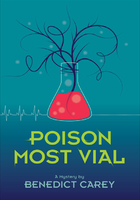Mr. Gibson believed that Cynthia Kirkpatrick was to return to England to be present at her mother's wedding; but Mrs. Kirkpatrick had no such intention. She was not what is commonly called a woman of determination; but somehow what she disliked she avoided, and what she liked she tried to do, or to have. So although in the conversation, which she had already led to, as to the when and the how she was to be married, she had listened quietly to Mr. Gibson's proposal that Molly and Cynthia should be the two bridesmaids, she had felt how disagreeable it would be to her to have her young daughter flashing out her beauty by the side of the faded bride, her mother; and as the further arrangements for the wedding became more definite, she saw further reasons in her own mind for Cynthia's remaining quietly at her school at Boulogne.
Mrs. Kirkpatrick had gone to bed that first night of her engagement to Mr. Gibson, fully anticipating a speedy marriage. She looked to it as a release from the thraldom of keeping school—keeping an unprofitable school, with barely enough of pupils to pay for house-rent and taxes, food, washing, and the requisite masters. She saw no reason for ever going back to Ashcombe, except to wind up her affairs, and to pack up her clothes. She hoped that Mr. Gibson's ardour would be such that he would press on the marriage, and urge her never to resume her school drudgery, but to relinquish it now and for ever. She even made up a very pretty, very passionate speech for him in her own mind; quite sufficiently strong to prevail upon her, and to overthrow the scruples which she felt that she ought to have, at telling the parents of her pupils that she did not intend to resume school, and that they must find another place of education for their daughters, in the last week but one of the midsummer holidays.
It was rather like a douche of cold water on Mrs. Kirkpatrick's plans, when the next morning at breakfast Lady Cumnor began to decide upon the arrangements and duties of the two middle-aged lovers.
'Of course you can't give up your school all at once, Clare. The wedding can't be before Christmas, but that will do very well. We shall all be down at the Towers; and it will be a nice amusement for the children to go over to Ashcombe, and see you married.'
'I think—I am afraid—I don't believe Mr. Gibson will like waiting so long; men are so impatient under these circumstances.'
'Oh, nonsense! Lord Cumnor has recommended you to his tenants, and I'm sure he wouldn't like them to be put to any inconvenience. Mr Gibson will see that in a moment. He's a man of sense, or else he wouldn't be our family doctor. Now, what are you going to do about your little girl? Have you fixed yet?'
'No. Yesterday there seemed so little time, and when one is agitated it is so difficult to think of everything. Cynthia is nearly eighteen, old enough to go out as a governess, if he wishes it, but I don't think he will. He is so generous and kind.'
'Well! I must give you time to settle some of your affairs to-day. Don't waste it in sentiment, you're too old for that. Come to a clear understanding with each other; it will be for your happiness in the long run.'
So they did come to a clear understanding about one or two things. To Mrs. Kirkpatrick's dismay, she found that Mr. Gibson had no more idea than Lady Cumnor of her breaking faith with the parents of her pupils. Though he really was at a serious loss as to what was to become of Molly until she could be under the protection of his new wife at her own home, and though his domestic worries teased him more and more every day, he was too honourable to think of persuading Mrs. Kirkpatrick to give up school a week sooner than was right for his sake. He did not even perceive how easy the task of persuasion would be; with all her winning wiles she could scarcely lead him to feel impatience for the wedding to take place at Michaelmas.
'I can hardly tell you what a comfort and relief it will be to me, Hyacinth, when you are once my wife—the mistress of my home—poor little Molly's mother and protector; but I wouldn't interfere with your previous engagements for the world. It wouldn't be right.'
'Thank you, my own love. How good you are! So many men would think only of their own wishes and interests! I'm sure the parents of my dear pupils will admire you—will be quite surprised at your consideration for their interests.'
'Don't tell them, then. I hate being admired. Why shouldn't you say it is your wish to keep on your school till they've had time to look out for another?'
'Because it isn't,' said she, daring all. 'I long to be making you happy; I want to make your home a place of rest and comfort to you; and I do so wish to cherish your sweet Molly, as I hope to do, when I come to be her mother. I can't take virtue to myself which doesn't belong to me. If I have to speak for myself, I shall say, "Good people, find a school for your daughters by Michaelmas,—for after that time I must go and make the happiness of others." I can't bear to think of your long rides in November—coming home wet at night with no one to take care of you. Oh! if you leave it to me, I shall advise the parents to take their daughters away from the care of one whose heart will be absent. Though I couldn't consent to any time before Michaelmas—that wouldn't be fair or right, and I'm sure you wouldn't urge me—you are too good.'
'Well, if you think that they will consider we have acted uprightly by them, let it be Michaelmas with all my heart. What does Lady Cumnor say?'
'Oh! I told her I was afraid you wouldn't like waiting, because of your difficulties with your servants, and because of Molly—it would be so desirable to enter on the new relationship with her as soon as possible.'
'To be sure; so it would. Poor child! I'm afraid the intelligence of my engagement has rather startled her.'
'Cynthia will feel it deeply, too,' said Mrs. Kirkpatrick, unwilling to let her daughter be behind Mr. Gibson's in sensibility and affection.
'We will have her over to the wedding! She and Molly shall be bridesmaids,' said Mr. Gibson, in the unguarded warmth of his heart.
This plan did not quite suit Mrs. Kirkpatrick; but she thought it best not to oppose it, until she had a presentable excuse to give, and perhaps also some reason would naturally arise out of future circumstances; so at this time she only smiled, and softly pressed the hand she held in hers.
It is a question whether Mrs. Kirkpatrick or Molly wished the most for the day to be over which they were to spend together at the Towers. Mrs. Kirkpatrick was rather weary of girls as a class. All the trials of her life were connected with girls in some way. She was very young when she first became a governess, and had been worsted in her struggles with her pupils, in the first place she ever went to. Her elegance of appearance and manner, and her accomplishments, more than her character and acquirements, had rendered it more easy for her than for most to obtain good 'situations;' and she had been absolutely petted in some; but still she was constantly encountering naughty or stubborn, or over-conscientious, or severe-judging, or curious and observant girls. And again, before Cynthia was born, she had longed for a boy, thinking it possible that if some three or four intervening relations died, he might come to be a baronet; and instead of a son, lo and behold it was a daughter! Nevertheless, with all her dislike to girls in the abstract as 'the plagues of her life' (and her aversion was not diminished by the fact of her having kept a school for 'young ladies' at Ashcombe), she really meant to be as kind as she could be to her new step-daughter, whom she remembered principally as a black- haired, sleepy child, in whose eyes she had read admiration of herself. Mrs. Kirkpatrick accepted Mr. Gibson principally because she was tired of the struggle of earning her own livelihood; but she liked him personally—nay, she even loved him in her torpid way, and she intended to be good to his daughter, though she felt as if it would have been easier for her to have been good to his son.
Molly was bracing herself up in her way too. 'I will be like Harriet. I will think of others. I won't think of myself,' she kept repeating all the way to the Towers. But there was no selfishness in wishing that the day was come to an end, and that she did very heartily. Mrs. Hamley sent her thither in the carriage, which was to wait and bring her back at night. Mrs. Hamley wanted Molly to make a favourable impression, and she sent for her to come and show herself before she set out.
'Don't put on your silk gown—your white muslin will look the nicest, my dear.'
'Not my silk? it is quite new! I had it to come here.'
'Still, I think your white muslin suits you the best.' 'Anything but that horrid plaid silk' was the thought in Mrs. Hamley's mind; and, thanks to her, Molly set off for the Towers, looking a little quaint, it is true, but thoroughly ladylike, if she was old-fashioned. Her father was to meet her there; but he had been detained, and she had to face Mrs. Kirkpatrick by herself, the recollection of her last day of misery at the Towers fresh in her mind as if it had been yesterday. Mrs. Kirkpatrick was as caressing as could be. She held Molly's hand in hers, as they sate together in the library, after the first salutations were over. She kept stroking it from time to time, and purring out inarticulate sounds of loving satisfaction, as she gazed in the blushing face.
'What eyes! so like your dear father's! How we shall love each other— shan't we, darling? For his sake!'
'I'll try,' said Molly, bravely; and then she could not finish her sentence.
'And you've just got the same beautiful black curling hair!' said Mrs. Kirkpatrick, softly lifting one of Molly's curls from off her white temple.
'Papa's hair is growing grey,' said Molly.
'Is it? I never see it. I never shall see it. He will always be to me the handsomest of men.'
Mr. Gibson was really a very handsome man, and Molly was pleased with the compliment; but she could not help saying,—
'Still he will grow old, and his hair will grow grey. I think he will be just as handsome, but it won't be as a young man.'
'Ah! that's just it, love. He'll always be handsome; some people always are. And he is so fond of you, dear.' Molly's colour flashed into her face. She did not want an assurance of her own father's love from this strange woman. She could not help being angry; all she could do was to keep silent. 'You don't know how he speaks of you; "his little treasure," as he calls you. I'm almost jealous sometimes.'
Molly took her hand away, and her heart began to harden; these speeches were so discordant to her. But she set her teeth together, and 'tried to be good.'
'We must make him so happy. I'm afraid he has had a great deal to annoy him at home; but we will do away with all that now. You must tell me,' seeing the cloud in Molly's eyes, 'what he likes and dislikes, for of course you will know.'
Molly's face cleared a little; of course she did know. She had not watched and loved him so long without believing that she understood him better than any one else; though how he had come to like Mrs Kirkpatrick enough to wish to marry her, was an unsolved problem that she unconsciously put aside as inexplicable. Mrs. Kirkpatrick went on,—'All men have their fancies and antipathies, even the wisest. I have known some gentlemen annoyed beyond measure by the merest trifles; leaving a door open, or spilling tea in their saucers, or a shawl crookedly put on. Why,' continued she, lowering her voice, 'I know of a house to which Lord Hollingford will never be asked again because he didn't wipe his shoes on both the mats in the hall! Now you must tell me what your dear father dislikes most in these fanciful ways, and I shall take care to avoid it. You must be my little friend and helper in pleasing him. It will be such a pleasure to me to attend to his slightest fancies. About my dress, too—what colours does he like best? I want to do everything in my power with a view to his approval.'
Molly was gratified by all this, and began to think that really, after all, perhaps her father had done well for himself; and that if she could help towards his new happiness, she ought to do it. So she tried very conscientiously to think over Mr. Gibson's wishes and ways; to ponder over what annoyed him the most in his household.
'I think,' said she, 'papa isn't particular about many things; but I think our not having the dinner quite punctual—quite ready for him when he comes in, fidgets him more than anything. You see, he has often had a long ride, and there is another long ride to come, and he has only half-an-hour—sometimes only a quarter—to eat his dinner in.'
'Thank you, my own love. Punctuality! Yes; it's a great thing in a household. It's what I've had to enforce with my young ladies at Ashcombe. No wonder poor dear Mr. Gibson has been displeased at his dinner not being ready, and he so hard-worked!'
'Papa doesn't care what he has, if it's only ready. He would take bread-and-cheese, if cook would only send it in instead of dinner.'
'Bread-and-cheese! Does Mr. Gibson eat cheese?'
'Yes; he's very fond of it,' said Molly, innocently. 'I've known him eat toasted cheese when he has been too tired to fancy anything else.'
'Oh! but, my dear, we must change all that. I shouldn't like to think of your father eating cheese; it's such a strong-smelling, coarse kind of thing. We must get him a cook who can toss him up an omelette, or something elegant. Cheese is only fit for the kitchen.'
'Papa is very fond of it,' persevered Molly.
'Oh! but we will cure him of that. I couldn't bear the smell of cheese; and I'm sure he would be sorry to annoy me.'
Molly was silent; it did not do, she found, to be too minute in telling about her father's likes or dislikes. She had better leave them for Mrs. Kirkpatrick to find out for herself. It was an awkward pause; each was trying to find something agreeable to say. Molly spoke at length. 'Please! I should so like to know something about Cynthia—your daughter.'
'Yes, call her Cynthia. It's a pretty name, isn't it? Cynthia Kirkpatrick. Not so pretty, though, as my old name, Hyacinth Clare. People used to say it suited me so well. I must show you an acrostic a gentleman—he was a lieutenant in the 53rd—made upon it. Oh! we shall have a great deal to say to each other, I foresee!'
'But about Cynthia?'
'Oh, yes! about dear Cynthia. What do you want to know, my dear?'
'Papa said she was to live with us! When will she come?'
'Oh, was it not sweet of your kind father? I thought of nothing else but Cynthia's going out as a governess when she had completed her education; she has been brought up for it, and has had great advantages. But good dear Mr. Gibson wouldn't hear of it. He said yesterday that she must come and live with us when she left school.'
'When will she leave school?'
'She went for two years. I don't think I must let her leave before next summer. She teaches English as well as learning French. Next summer she shall come home, and then shan't we be a happy little quartette?'
'I hope so,' said Molly. 'But she is to come to the wedding, isn't she?' she went on timidly, now knowing how far Mrs. Kirkpatrick would like the allusion to her marriage.
'Your father has begged for her to come; but we must think about it a little more before quite fixing it. The journey is a great expense!'
'Is she like you? I do so want to see her.'
'She is very handsome, people say. In the bright-coloured style,— perhaps something like what I was. But I like the dark-haired foreign kind of beauty best—just now,' touching Molly's hair, and looking at her with an expression of sentimental remembrance.
'Does Cynthia—is she very clever and accomplished?' asked Molly, a little afraid lest the answer should remove Miss Kirkpatrick at too great a distance from her.
'She ought to be; I've paid ever so much money to have her taught by the best masters. But you will see her before long, and I'm afraid we must go now to Lady Cumnor. It has been very charming having you all to myself, but I know Lady Cumnor will be expecting us now, and she was very curious to see you,—my future daughter, as she calls you.'
Molly followed Mrs. Kirkpatrick into the morning-room, where Lady Cumnor was sitting—a little annoyed, because, having completed her toilette earlier than usual, Clare had not been aware by instinct of the fact, and so had not brought Molly Gibson for inspection a quarter of an hour before. Every small occurrence is an event in the day of a convalescent invalid, and a little while ago Molly would have met with patronizing appreciation, where now she had to encounter criticism. Of Lady Cumnor's character as an individual she knew nothing; she only knew she was going to see and be seen by a live countess; nay, more, by 'the countess' of Hollingford.
Mrs. Kirkpatrick led her into Lady Cumnor's presence by the hand, and in presenting her, said,—'My dear little daughter, Lady Cumnor!'
'Now, Clare, don't let me have nonsense. She is not your daughter yet, and may never be,—I believe that one-third of the engagements I have heard of, have never come to marriages. Miss Gibson, I am very glad to see you, for your father's sake; when I know you better, I hope it will be for your own.'
Molly very heartily hoped that she might never be known any better by the stern-looking lady who sate so uprightly in the easy chair, prepared for lounging, and which therefore gave all the more effect to the stiff attitude. Lady Cumnor luckily took Molly's silence for acquiescent humility, and went on speaking after a further little pause of inspection.
'Yes, yes, I like her looks, Clare. You may make something of her. It will be a great advantage to you, my dear, to have a lady who has trained up several young people of quality always about you just at the time when you are growing up. I'll tell you what, Clare!'—a sudden thought striking her,—'you and she must become better acquainted—you know nothing of each other at present; you are not to be married till Christmas, and what could be better than that she should go back with you to Ashcombe! She would be with you constantly, and have the advantage of the companionship of your young people, which would be a good thing for an only child! It's a capital plan; I'm very glad I thought of it!'
Now it would be difficult to say which of Lady Cumnor's two hearers was the most dismayed at the idea which had taken possession of her. Mrs. Kirkpatrick had no fancy for being encumbered with a step-daughter before her time. If Molly came to be an inmate of her house, farewell to many little background economies, and a still more serious farewell to many little indulgences, that were innocent enough in themselves, but which Mrs. Kirkpatrick's former life had caused her to look upon as sins to be concealed: the dirty dog's-eared delightful novel from the Ashcombe circulating library, the leaves of which she turned over with a pair of scissors, the lounging-chair which she had for use at her own home, straight and upright as she sate now in Lady Cumnor's presence; the dainty morsel, savoury and small, to which she treated herself for her own solitary supper,—all these and many other similarly pleasant things would have to be foregone if Molly came to be her pupil, parlour-boarder, or visitor, as Lady Cumnor was planning. One—two things Clare was instinctively resolved upon: to be married at Michaelmas, and not to have Molly at Ashcombe. But she smiled as sweetly as if the plan proposed was the most charming project in the world, while all the time her poor brains were beating about in every bush for the reasons or excuses of which she should make use at some future time. Molly, however, saved her all this trouble. It was a question which of the three was the most surprised by the words which burst out of her lips. She did not mean to speak, but her heart was very full, and almost before she was aware of her thought she heard herself saying,—
'I don't think it would be nice at all. I mean, my lady, that I should dislike it very much; it would be taking me away from papa just these very few last months. I will like you,' she went on, her eyes full of tears; and, turning to Mrs. Kirkpatrick, she put her hand into her future stepmother's with the prettiest and most trustful action. 'I will try hard to love you, and to do all I can to make you happy, but you must not take me away from papa just this very last bit of time that I shall have him.'
Mrs. Kirkpatrick fondled the hand thus placed in hers, and was grateful to the girl for her outspoken opposition to Lady Cumnor's plan. Clare was, however, exceedingly unwilling to back up Molly by any words of her own until Lady Cumnor had spoken and given the cue. But there was something in Molly's little speech, or in her straightforward manner, that amused instead of irritating Lady Cumnor in her present mood. Perhaps she was tired of the silkiness with which she had been shut up for so many days.
She put up her glasses, and looked at them both before speaking. Then she said,—'Upon my word, young lady! Why, Clare, you've got your work before you! Not but what there is a good deal of truth in what she says. It must be very disagreeable to a girl of her age to have a stepmother coming in between her father and herself, whatever may be the advantages to her in the long run.'
Molly almost felt as if she could make a friend of the stiff old countess, for her clearness of sight as to the plan proposed being a trial; but she was afraid, in her new-born desire of thinking for others, of Mrs. Kirkpatrick being hurt. She need not have feared as far as outward signs went, for the smile was still on that lady's pretty rosy lips, and the soft fondling of her hand never stopped. Lady Cumnor was more interested in Molly the more she looked at her; and her gaze was pretty steady through her gold-rimmed eye-glasses. She began a sort of catechism; a string of very straightforward questions, such as any lady under the rank of countess might have scrupled to ask, but which were not unkindly meant.
'You are sixteen, are you not?'
'No; I am seventeen. My birthday was three weeks ago.'
'Very much the same thing, I should think. Have you ever been to school?'
'No, never! Miss Eyre has taught me everything I know.'
'Umph! Miss Eyre was your governess, I suppose? I should not have thought your father could have afforded to keep a governess. But of course he must know his own affairs best.'
'Certainly, my lady,' replied Molly, a little touchy as to any reflections on her father's wisdom.
'You say "certainly!" as if it was a matter of course that every one should know their own affairs best. You are very young, Miss Gibson— very. You'll know better before you come to my age. And I suppose you've been taught music, and the use of the globes, and French, and all the usual accomplishments, since you have had a governess? I never heard of such nonsense!' she went on, lashing herself up. 'An only daughter! If there had been half-a-dozen girls, there might have been some sense in it.'
Molly did not speak but it was by a strong effort that she kept silence. Mrs. Kirkpatrick fondled her hand more perseveringly than ever, hoping thus to express a sufficient amount of sympathy to prevent her from saying anything injudicious. But the caress had become wearisome to Molly, and only irritated her nerves. She took her hand out of Mrs. Kirkpatrick's, with a slight manifestation of impatience.
It was, perhaps, fortunate for the general peace that just at this moment Mr. Gibson was announced. It is odd enough to see how the entrance of a person of the opposite sex into an assemblage of either men or women calms down the little discordances and the disturbance of mood. It was the case now; at Mr. Gibson's entrance my lady took off her glasses, and smoothed her brow; Mrs. Kirkpatrick managed to get up a very becoming blush, and as for Molly, her face glowed with delight, and the white teeth and pretty dimples came out like sunlight on a landscape.
Of course, after the first greeting, my lady had to have a private interview with her doctor; and Molly and her future stepmother wandered about in the gardens with their arms round each other's waists, or hand in hand, like the babes in the wood; Mrs. Kirkpatrick active in such endearments, Molly passive, and feeling within herself very shy and strange; for she had that particular kind of shy modesty which makes any one uncomfortable at receiving caresses from a person towards whom the heart does not go forth with an impulsive welcome.
Then came the early dinner; Lady Cumnor having hers in the quiet of her own room, to which she was still a prisoner. Once or twice during the meal, the idea crossed Molly's mind that her father disliked his position as a middle-aged lover being made so evident to the men in waiting as it was by Mrs. Kirkpatrick's affectionate speeches and innuendos. He tried to banish every tint of pink sentimentalism from the conversation, and to confine it to matter of fact; and when Mrs. Kirkpatrick would persevere in dwelling upon such facts as had a bearing upon the future relationship of the parties, he insisted upon viewing them in the most matter-of-fact way; and this continued even after the men had left the room. An old rhyme Molly had heard Betty use, would keep running in her head and making her uneasy,—
'Two is company, Three is trumpery.'
But where could she go to in that strange house? What ought she to do? She was roused from this fit of wonder and abstraction by her father's saying,—'What do you think of this plan of Lady Cumnor's? She says she was advising you to have Molly as a visitor at Ashcombe until we are married.'
Mrs. Kirkpatrick's countenance fell. If only Molly would be so good as to testify again, as she had done before Lady Cumnor! But if the proposal was made by her father, it would come to his daughter from a different quarter than it had done from a strange lady, be she ever so great. Molly did not say anything; she only looked pale, and wistful, and anxious. Mrs. Kirkpatrick had to speak for herself.
'It would be a charming plan, only—Well! we know why we would rather not have it, don't we, love? And we won't tell papa, for fear of making him vain. No! I think I must leave her with you, dear Mr Gibson, to have you all to herself for these last few weeks. It would be cruel to take her away.'
'But you know, my dear, I told you of the reason why it does not do to have Molly at home just at present,' said Mr. Gibson, eagerly. For the more he knew of his future wife, the more he felt it necessary to remember that, with all her foibles, she would be able to stand between Molly and any such adventures as that which had occurred lately with Mr. Coxe; so that one of the good reasons for the step he had taken was always present to him, while it had slipped off the smooth surface of Mrs. Kirkpatrick's mirror-like mind without leaving any impression. She now recalled it, on seeing Mr. Gibson's anxious face.
But what were Molly's feelings at these last words of her father's? She had been sent from home for some reason, kept a secret from her, but told to this strange woman. Was there to be perfect confidence between these two, and she to be for ever shut out? Was she, and what concerned her—though how, she did not know—to be discussed between them for the future, and she to be kept in the dark? A bitter pang of jealousy made her heart-sick. She might as well go to Ashcombe, or anywhere else, now. Thinking more of others' happiness than of her own was very fine; but did it not mean giving up her very individuality, quenching all the warm love, the keen desires, that made her herself? Yet in this deadness lay her only comfort; or so it seemed. Wandering in such mazes, she hardly knew how the conversation went on; a third was indeed 'trumpery,' where there was entire confidence between the two who were company, from which the other was shut out. She was positively unhappy, and her father did not appear to see it; he was absorbed with his new plans and his new wife that was to be. But he did notice it; and was keenly sorry for his little girl; only he thought that there was a greater chance for the future harmony of the household, if he did not lead Molly to define her present feelings by putting them into words. It was his general plan to repress emotion by not showing the sympathy he felt. Yet, when he had to leave, he took Molly's hand in his, and held it there, in such a different manner to that in which Mrs. Kirkpatrick had done; and his voice softened to his child as he bade her good-by, and added the words (most unusual to him), 'God bless you, child!'
Molly had held up all the day bravely; she had not shown anger, or repugnance, or annoyance, or regret; but when once more by herself in the Hamley carriage, she burst into a passion of tears, and cried her fill till she reached the village of Hamley. Then she tried in vain to smooth her face into smiles, and do away with the other signs of her grief. She only hoped she could run upstairs to her own room without notice, and bathe her eyes in cold water before she was seen. But at the hall-door she was caught by the squire and Roger coming in from an after-dinner stroll in the garden, and hospitably anxious to help her to alight. Roger saw the state of things in an instant, and saying,—
'My mother has been looking for you to come back for this last hour,' he led the way to the drawing-room. But Mrs. Hamley was not there; the squire had stopped to speak to the coachman about one of the horses; they two were alone. Roger said,—
'I am afraid you have had a very trying day. I have thought of you several times, for I know how awkward these new relations are.'
'Thank you,' said she, her lips trembling, and on the point of crying again. 'I did try to remember what you said, and to think more of others, but it is so difficult sometimes; you know it is, don't you?'
'Yes,' said he, gravely. He was gratified by her simple confession of having borne his words of advice in mind, and tried to act up to them. He was but a very young man, and he was honestly flattered; perhaps this led him on to offer more advice, and this time it was evidently mingled with sympathy. He did not want to draw out her confidence, which he felt might very easily be done with such a simple girl; but he wished to help her by giving her a few of the principles on which he had learnt to rely. 'It is difficult,' he went on, 'but by-and-by you will be so much happier for it.'
'No, I shan't!' said Molly, shaking her head. 'It will be very dull when I shall have killed myself, as it were, and live only in trying to do, and to be, as other people like. I don't see any end to it. I might as well never have lived. And as for the happiness you speak of, I shall never be happy again.'
There was an unconscious depth in what she said, that Roger did not know how to answer at the moment; it was easier to address himself to the assertion of the girl of seventeen, that she should never be happy again.
'Nonsense: perhaps in ten years' time you will be looking back on this trial as a very light one—who knows?'
'I daresay it seems foolish; perhaps all our earthly trials will appear foolish to us after a while; perhaps they seem so now to angels. But we are ourselves, you know, and this is now, not some time to come, a long, long way off. And we are not angels, to be comforted by seeing the ends for which everything is sent.'
She had never spoken so long a sentence to him before; and when she had said it, though she did not take her eyes away from his, as they stood steadily looking at each other, she blushed a little; she could not have told why. Nor did he tell himself why a sudden pleasure came over him as he gazed at her simple expressive face—and for a moment lost the sense of what she was saying, in the sensation of pity for her sad earnestness. In an instant more he was himself again. Only it is pleasant to the wisest, most reasonable youth of one or two and twenty to find himself looked up to as a Mentor by a girl of seventeen.
'I know, I understand. Yes: it is now we have to do with. Don't let us go into metaphysics.' Molly opened her eyes wide at this. Had she been talking metaphysics without knowing it? 'One looks forward to a mass of trials, which will only have to be encountered one by one, little by little. Oh, here is my mother! she will tell you better than I can.'
And the tete-a-tete was merged in a trio. Mrs. Hamley lay down; she had not been well all day—she had missed Molly, she said,—and now she wanted to hear of all the adventures that had occurred to the girl at the Towers. Molly sate on a stool close to the head of the sofa, and Roger, though at first he took up a book and tried to read that he might be no restraint, soon found his reading all a pretence: it was so interesting to listen to Molly's little narrative, and, besides, if he could give her any help in her time of need, was it not his duty to make himself acquainted with all the circumstances of her case?
And so they went on during all the remaining time of Molly's stay at Hamley. Mrs. Hamley sympathized, and liked to hear details, as the French say, her sympathy was given en detail, the squire's en gros. He was very sorry for her evident grief, and almost felt guilty, as if he had had a share in bringing it about, by the mention he had made of the possibility of Mr. Gibson's marrying again, when first Molly had come on her visit to them. He said to his wife more than once,—
''Pon my word, now, I wish I'd never spoken those unlucky words that first day at dinner. Do you remember how she took them up? It was like a prophecy of what was to come, now, wasn't it? And she looked pale from that day, and I don't think she has ever fairly enjoyed her food since. I must take more care what I say for the future. Not but what Gibson is doing the very best thing, both for himself and her, that he can do. I told him so only yesterday. But I'm very sorry for the little girl, though. I wish I'd never spoken about it, that I do! but it was like a prophecy, wasn't it?'
Roger tried hard to find out a reasonable and right method of comfort, for he, too, in his way, was sorry for the girl, who bravely struggled to be cheerful, in spite of her own private grief, for his mother's sake. He felt as if high principle and noble precept ought to perform an immediate work. But they do not, for there is always the unknown quantity of individual experience and feeling, which offer a tacit resistance, the amount incalculable by another, to all good counsel and high decree. But the bond between the Mentor and his Telemachus strengthened every day. He endeavoured to lead her out of morbid thought into interest in other than personal things; and, naturally enough, his own objects of interest came readiest to hand. She felt that he did her good, she did not know why or how; but after a talk with him, she always fancied that she had got the clue to goodness and peace, whatever befell.















